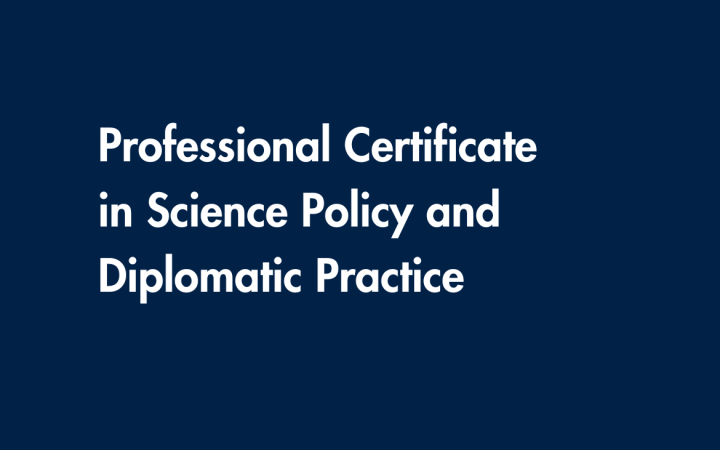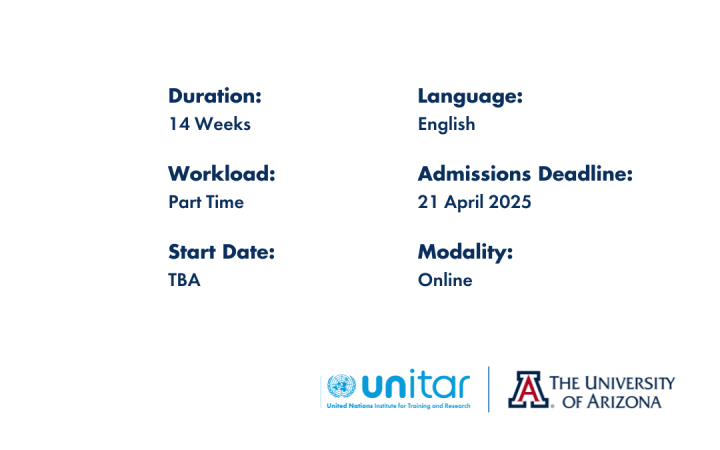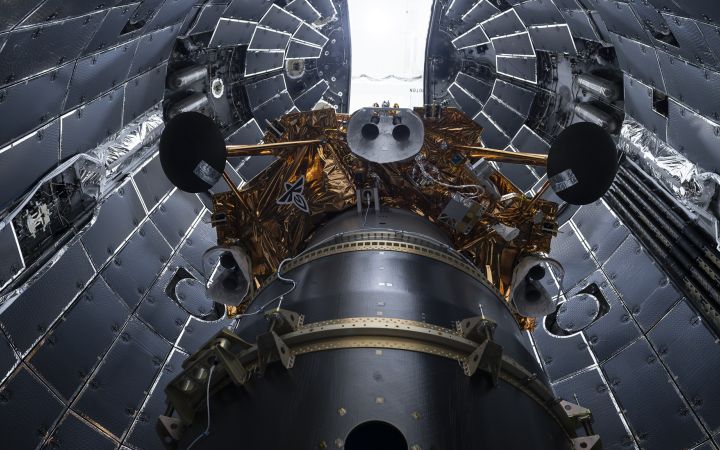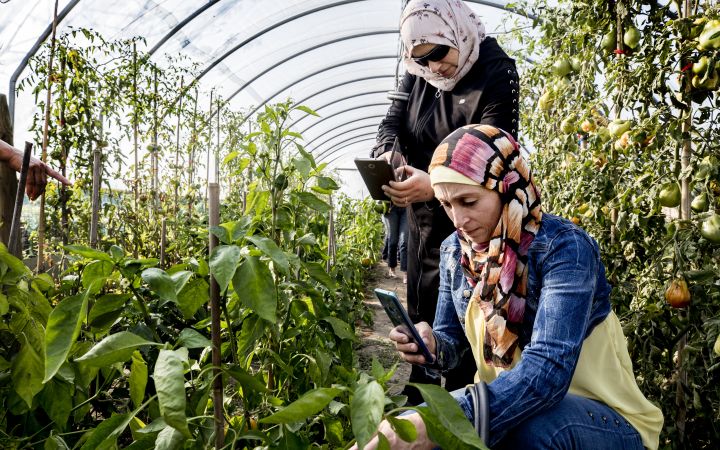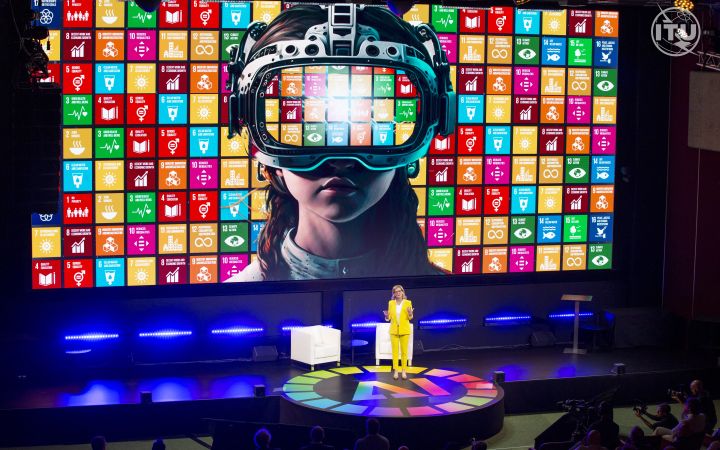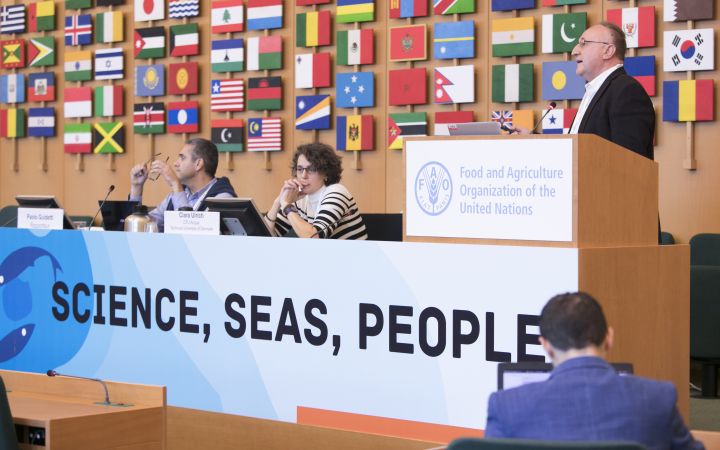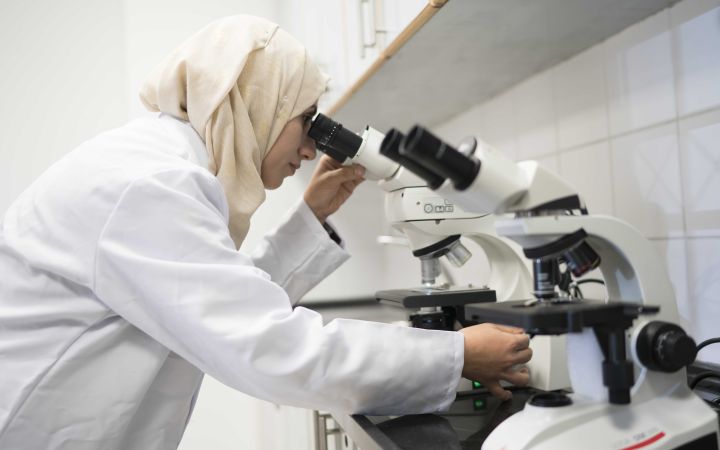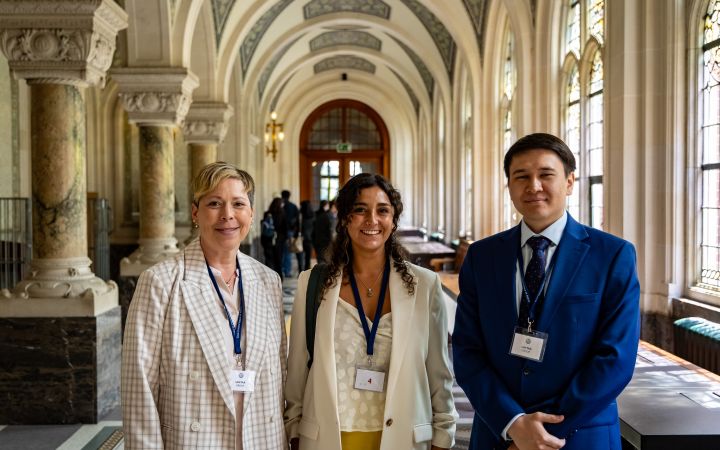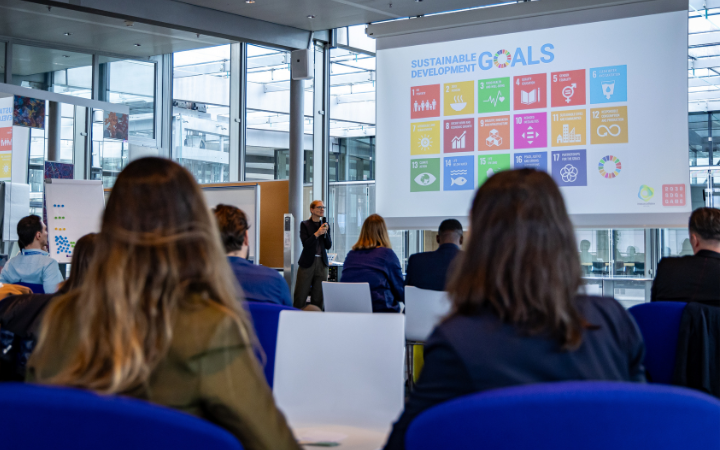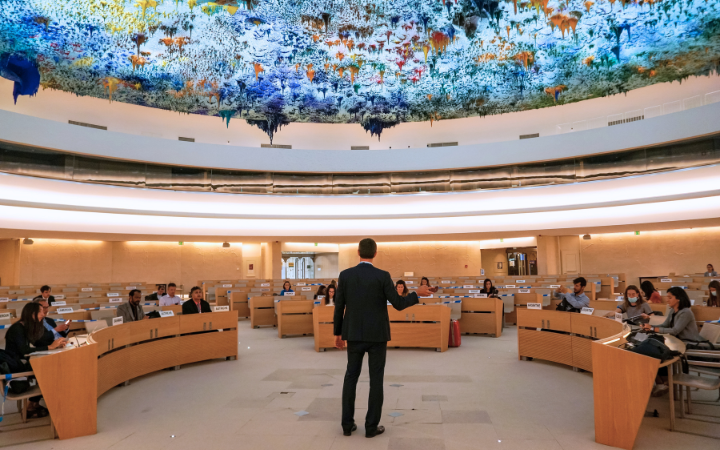The Professional Certificate in Science Policy and Diplomatic Practice will be taught entirely online with both synchronous and asynchronous components. The programme utilizes lectures, case studies, interactive sessions, groupwork, and discussions to identify best practices in each subject. The programme is comprised of three modules which discuss the following topics:
Module 1: Science Policy and Diplomacy
This module delves into the intersection of scientific advancement and policymaking, emphasizing the critical need for experts who can effectively bridge these domains. This is accomplished by exploring the evolution of science policy, the role of ethics in science and engineering, science diplomacy, global health diplomacy, engineering diplomacy, science diplomacy in cyberspace, artificial intelligence, hydro and ocean science diplomacy, climate change and science diplomacy, space science diplomacy, food security and science diplomacy, conflict resolution, career planning in science policy, and more. Students will have the opportunity to learn from guest lecturers, including university professors, industry entrepreneurs, and renowned science diplomacy experts from the US National Academy of Sciences, the US National Academy of Engineering, and the American Association for the Advancement of Science (AAAS). The course is grounded in presentations that provide historical perspectives and emphasize current and emerging issues in science policy and diplomacy.
Units:
- 1. Ethics and Philosophy of Science
- 2. Defining Science Policy & Diplomacy
- 3. Global Health Diplomacy
- 4. Engineering Policy and Diplomacy
- 5. Climate Science Diplomacy
- 6. Hydro & Ocean Science Diplomacy
- 7. Food Security and Science Diplomacy
- 8. Tech Diplomacy (Cybersecurity and Artificial Intelligence)
- 9. Space Science Diplomacy
- 10. Science Policy & Diplomacy: Looking Forward
Module 2: Mediation and Conflict Resolution
Mediation is a unique form of conflict resolution that is equally applicable to deal with disagreements within teams as it is for addressing international conflicts between sovereign states. The ability to effectively mediate a conflict is a core competence of diplomats and essential for managing the often-challenging relationships within and between states. In this module, the participants will be presented with both the strategies and skills necessary to effectively negotiate in international settings. The topics will be organized thematically; among these, conflict analysis, effective mediation strategies and mediation skills in a multicultural setting. The course also addresses contemporary challenges to mediation and looks at possible responses.
Units:
- 1. The Fundamentals of Conflict Resolution
- 2. Conflict Analysis
- 3. Effective Mediation Strategies
- 4. Mediation Skills in a Multicultural Environment
- 5. Challenges for International Mediation
Module 3: Diplomatic Communication
Diplomacy can be defined as a "the communication system of international society", and in the twenty-first century, it has become a standardized practice, particularly in the field of multilateral diplomacy and protocol. Diplomatic communication is now practiced by various stakeholders: from representatives of states to international organizations, to NGOs, and with the emergence of many non-state actors, new methods of communication have been developed. This course will explore the field of oral and written communication to integrate verbal and non-verbal codes and intercultural subtleties into the diplomatic discourse. This course will focus on the standardized and technical vocabulary, as well as the required norms to achieve these goals, and by the end of the module, students will have acquired the tools to effectively interpret and convey scientific information to policymakers.
Units:
- 1. Why Does Diplomatic Communication Matter?
- 2. Diplomatic Protocol – Rules and Etiquette
- 3. Beyond Words: Verbal and Non-Verbal Communication
- 4. The Impact of Culture on Communication Diplomacy
- 5. Purpose Driven and Communication Strategies in the Digital Age


